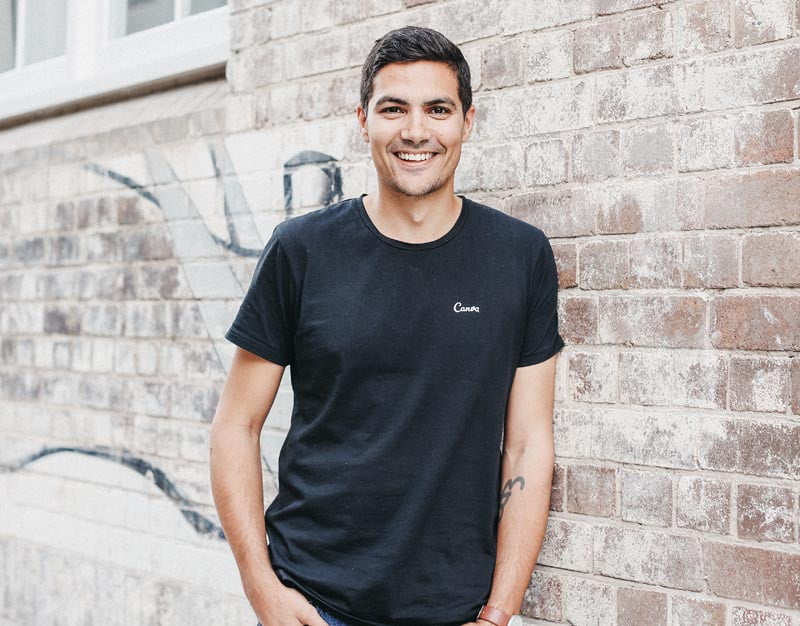Venture capital funding has provided a war chest for Canva, allowing it to buy online presentation business Zeetings.
The three-year old Sydney based Zeetings boasts BMW, EY, Deloitte, Woolworths, CSIRO, the ASX and most Australian universities as customers. Chief executive and co-founder Robert Kawalsky will join Canva, though the financial terms of the takeover were not disclosed.
Canva’s recent US$40 million Series C funding round, which filled the company’s coffers, valued the Sydney-based startup at US$1 billion and was one of the most significant of 16 VC investments made in Australia over the first quarter of the year.

The VC trajectory is headed in the right direction in Australia – but it’s worth noting that during the first quarter of the year, just 0.2 per cent of the $63 billion of venture capital funds allocated globally wound its way to local companies.
According to Venture Pulse Q1 2018, a report published by KPMG, $63 billion worth of venture capital (VC) funds was spent on 2,661 global deals during the first quarter. In Australia it tracked $130 million of VC funds spent on 16 deals.
It was nevertheless enough to finance Canva’s immediate expansion ambitions and Melanie Perkins’ (Canva co-founder and CEO) wish to “put an end to death by PowerPoint” by combining the design smarts of Canva and the presentation innovation of Zeetings.
Helping steer Canva’s strategy and ambitions is Damien Singh, head of finance. He’s one of a growing band of startup chief financial officers in Australia who play a different role to their CFO peers in more established enterprises.
Since he joined Canva two years ago the finance function at the company has grown five-fold – from three people to 15.
With a history in audit Mr Singh knows his way around a balance sheet, but it takes more than technical skill to be a valued startup CFO he said. “You need an appreciation that your technical skills are the reason you are there – but it’s your non-technical skills that are why you will be successful.”
For one, it’s necessary to be risk aware rather than risk averse, said Mr Singh.
“Accountants are quite a pessimistic bunch. You have to make sure that you don’t default to the no position – but make sure all the possible outcomes are known.”
While he does employ a risk framework, he acknowledged that “it’s not one you would see at a large organisation” and instead is a pretty high-level document that sets out where the company can take risks and where it should not.
He said it was important to educate Canva’s founders about risk, and also play a strategic advisory role to the business.
Besides the technical requirement to ensure a startup’s books are in order, that it can afford to buy key takeover targets, its reports are filed on time, taxes paid and R&D rebates claimed, startup CFOs need to navigate the politically charged waters of fund raising, employee share ownership planning, and ultimately trade sales or share market floats.
But that can be a very long way down the track from when a finance director first joins a startup.
KPMG entrepreneur-in-residence Alan Jones, who also works with tech accelerator BlueChilli and is an early investor in Canva, acknowledged the significant challenge that startups face when looking to grow and get their financials in order.
“Raising early stage capital here is harder so a lot of people can afford to hire developers but can’t afford to hire CFOs and other leadership team members,”Mr Jones said.
“A lot of Aussie startups smash together CFO with COO role, or sometimes it’s CEO/CFO – it’s also common to outsource CFO to a third-party provider.”
KPMG offers just such an outsourced CFO service to local startups. If a CFO does come into a business that really hasn’t had much finance focus at all they will likely “inherit a hell of a mess,” said Mr Jones. Then a startup CFO needs to “get up to speed very very quickly, identify any issues and fix them. You don’t have more than a quarter to fix things,” and to work out whether a company has been under or over reporting.
Mr Jones added that being a startup CFO is not for the faint-hearted. “People will be watching you with envy. They want to spectate, and see if you succeed or fail.”
Do you know more? Contact James Riley via Email.

